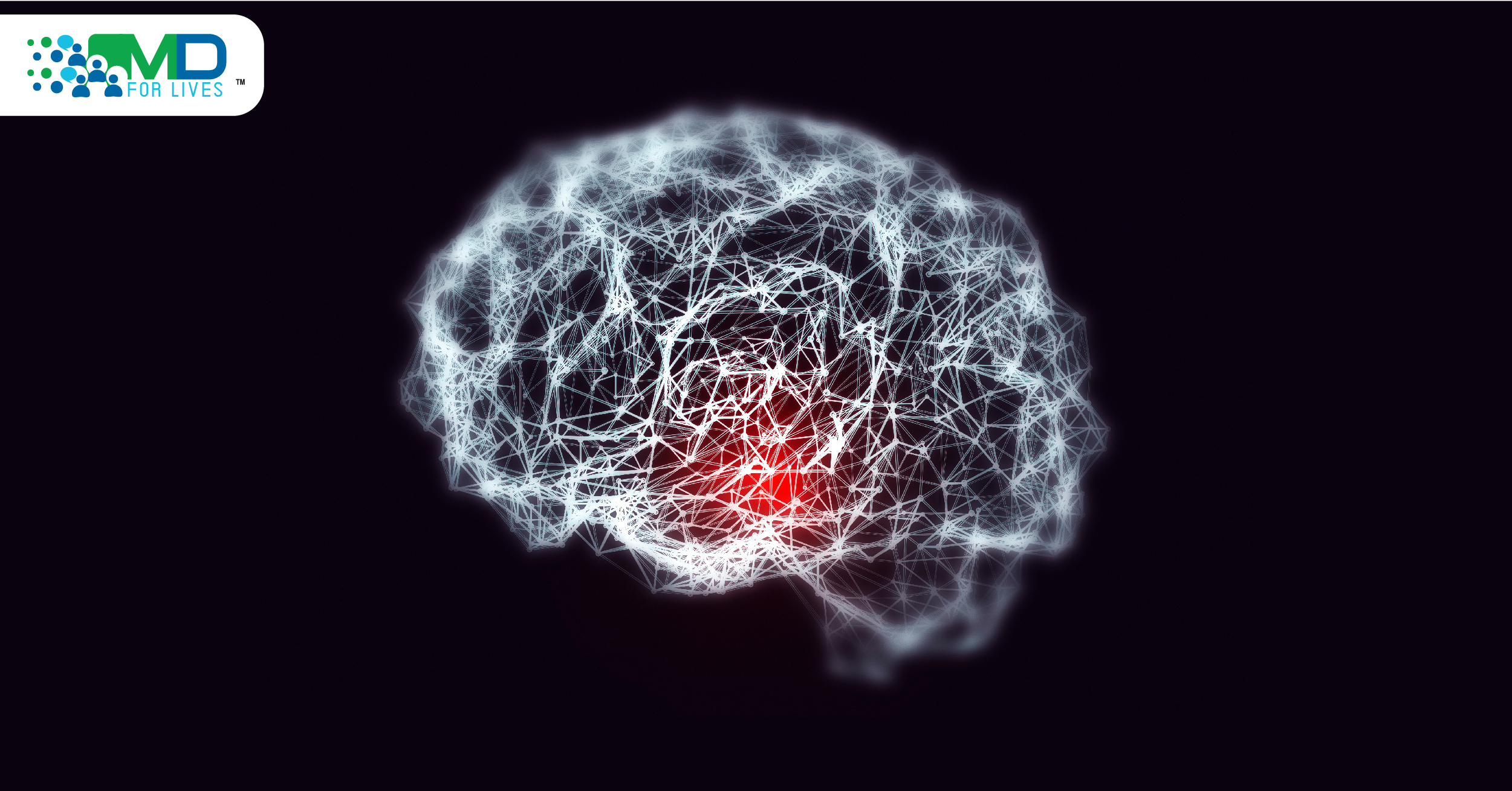Dementia-like cognitive impairment has been reported in a significant number of COVID-19 patients and long hauler patients. However, the mechanism remained unclear so far. Now, researchers from Cleveland Clinic have identified the mechanism responsible for the cognitive deficit in COVID-19. The new findings may provide a direction to develop preventive and therapeutic interventions.
Neurological Associations of COVID-19
Neurological manifestations and complications including headache, loss of taste/smell, delirium, stroke, dysexecutive syndrome, seizures, etc., are commonly reported in COVID-19 patients. Building on previous research on other human coronaviruses, it was predicted that SARS-CoV-2 infection might cause cognitive impairment. It is reported that the SARS-CoV-1 outbreak in 2002 and the MERS outbreak in 2012 have caused memory impairment in almost 20% of the convalesced patients.
Meanwhile, the risk factors of Alzheimer’s disease have been strongly associated with an elevated risk of severe COVID as well as a high mortality rate. Furthermore, vascular dementia, percentile dementia, etc., found to increase the risk of SARS-CoV-2 and also the mortality risk.
A growing body of evidence suggests hospitalized and non-hospitalized COVID-19 survivors, COVID-19 ICU survivors, or patients who suffered encephalopathy during COVID-19 have a high risk of neurological and mental health disorders. Also, neurophysiological evaluation of hospitalized COVID-19 patients have shown mild to severe cognitive impairment. However, the underlying mechanism remains unclear. Few studies have shown direct virus infection of the brain, whereas few stress that there’s no evidence of SARS-CoV-2 in the brain. Studies have also shown inflammation within the central nervous system (CNS) and microvascular injury in COVID-19 patients. Studies have demonstrated that SARS-CoV-2 spike protein can cross the blood-brain barrier (BBB), trigger endothelial inflammation, alters BBB, and enables neuroinvasion.
Link between ApoE4 and COVID-19
Although SARS-CoV-2 is typically associated with respiratory tract disease, there’s an increasing number of reports of neurological symptoms, few studies suggest that neurologic symptoms manifest in over one-third of COVID-19 patients.
Recently, researchers explored the link between Apolipoprotein E4 (ApoE4), the strong risk factor of Alzheimer’s and severe COVID-19. Researchers investigated how apoE4 impact the susceptibility or severity of COVID-19. They analyzed the neurotropism of SARS-CoV2 in human-induced pluripotent stem cell (hiPSC) models. They found that infection was boosted in 2D cultures- the neuron-astrocyte co-cultures, and organoids- the 3D tissue that recapitulates many features of the brain. Researchers studied the neurons and astrocytes generated from isogenic ApoE3/3 and ApoE4/4 hiPSCs and found a substantially higher rate of SARS-CoV-2 infection in ApoE4/4 neurons and astrocytes. ApoE4 astrocytes showed enlarged size and high nuclear fragmentation, an indication of cell death that contributes to the severity of the disease. Furthermore, they found the antiviral drug Remdesevir can inhibit the infection in neurons and astrocytes.
The study suggests that ApoE4 neurons and astrocytes are more susceptible to SARS-CoV-2 infection. The SARS-CoV-2 infection can activate astrocytes, induce cell death, and contributes to the severity of COVID-19.
COVID-19 and Dementia-like Cognitive Impairment
Alzheimer’s-like dementia has become one of the emerging areas of concern in the COVID era. To develop effective therapeutic interventions, understanding the underlying mechanism of COVID-19-induced cognitive impairment is essential.
To investigate the association of Alzheimer’s disease-like cognitive impairment with SARS-CoV-2 infection, the researchers used existing network-based multi-omics datasets of SARS-CoV-2-infected patients. They analyzed the bulk and single-cell/nuclei transcriptomic, proteomic, and interactomic datasets (SARS-CoV-2 virus-host interactome from protein-protein interaction assay and genetic interactions from CRISPR-Cas9 assays) from COVID-19 and Alzheimer’s patients.
They discovered significant network relationships between the virus and brain microvascular injury pathways and inflammation, the hallmarks of Alzheimer’s disease. They also detected the significantly altered Alzheimer’s biomarker in the cerebrospinal fluid and the blood. Found low expression of entry factors in the brain and neurons. Elevated expression of SARS-CoV-2 host factors and antiviral defense genes in brain endothelial cells indicating neuroinflammation and brain microvascular injury can lead to Alzheimer’s disease-like cognitive impairment in COVID-19 patients. They also found reduced expression of antiviral defense genes in individuals with the allele APOE E4/E4, indicating that APOE E4/E4 population are more susceptible to COVID-19.
The findings showed a minimal possibility of direct SARS-CoV2 neuroinvasion but demonstrated significant mechanistic overlap between Alzheimer’s disease and COVID-19 centered on the pathways related to neuroinflammation and brain microvascular injury.
The study suggests dementia patients are twice as likely to get COVID-19.
The above findings help to improve the understanding of COVID-19 associated cognitive impairment and provide guidance to develop effective preventive and therapeutic strategies.
Reference
Wang C, Zhang M, Garcia Jr G, Tian E, Cui Q, Chen X, Sun G, Wang J, Arumugaswami V, Shi Y. ApoE-isoform-dependent SARS-CoV-2 neurotropism and cellular response. Cell stem cell. 2021 Feb 4;28(2):331-42.
Zhou Y, Xu J, Hou Y, Leverenz JB, Kallianpur A, Mehra R, Liu Y, Yu H, Pieper AA, Jehi L, Cheng F. Network medicine links SARS-CoV-2/COVID-19 infection to brain microvascular injury and neuroinflammation in dementia-like cognitive impairment. Alzheimer’s research & therapy. 2021 Dec;13(1):1-9.






